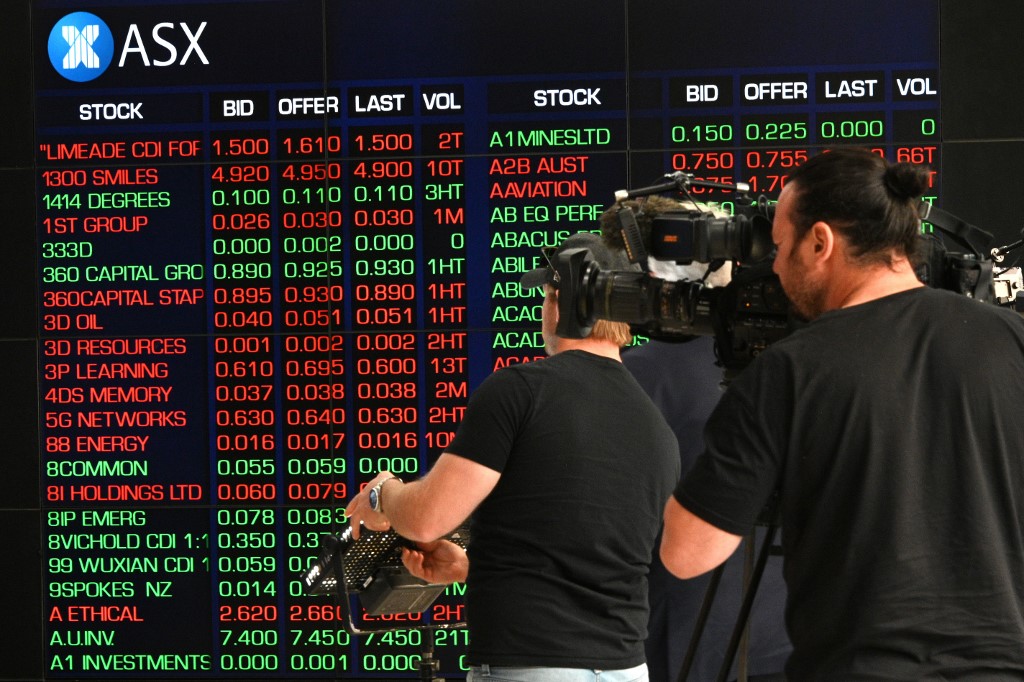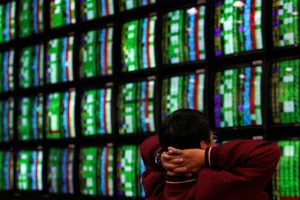(ATF) – Asian markets are watchful this morning after central banks and governments around the world announced measures aimed at boosting confidence which triggered a pause in selling.
Overnight the European Central Bank announced an asset purchase programme and the Reserve Bank of Australia cut interest rates to a record low of 0.25% at an emergency meeting today.
The Reserve Bank also said it would will buy Australian government bonds as part of its first-ever quantitative easing programme, and provide a A$90-billion three-year funding facility to provide cheap loans for Australian banks. In a statement, RBA governor Philip Lowe said the Covid-19 pandemic was having a “very major impact on the economy and the financial system”.
Marcel Thieliant, Senior Australia & New Zealand Economist at Capital Economics, said: “The RBA has previously stated in November that it has ‘no appetite’ to buy private sector assets. But Governor Lowe hinted that this could change if markets become dysfunctional.” He said the RBA may eventually decide to buy bank bonds or mortgage-backed securities. “And while the RBA has previously ruled out launching negative interest rates, that assessment could change as underlying inflation falls further below target and bank lending rates remain high.”
The crisis has also hurt the Aussie dollar, which dropped to just over 55 US cents, its lowest level for 18 years. Australian Treasurer Josh Frydenberg said: “Extraordinary times call for extraordinary measures and, today, the Australian Government, together with the Reserve Bank, have injected more than $100 billion into Australia’s financial system. It reflects our collective determination to do what it takes to support Australian jobs and Australian businesses.”
Earlier, the ECB said it will buy 750 billion euros of private and public sector securities. “Purchases will be conducted until the end of 2020 and will include all the asset categories eligible under the existing asset purchase programme,” the central bank said.
The virus has so far claimed 8,800 lives and infected nearly 218,000 people globally and it is now widely accepted that the measures to contain the pandemic will result in a global recession.
Analysts are scrambling to downgrade their economic forecasts as the severity of the impact and the momentum of the spread has taken financial markets by surprise.
Shocking data
The shocking economic data released by China earlier this week, in particular, has triggered the recaliberations.
“We now have early evidence of the negative economic impact on China and it has been far in excess of our initial projections. This, among other factors, including more widespread and draconian containment measures to deal with the spread, the emergence of strain in credit markets, and sharp tightening of financial conditions have caused us to revise down substantially our global growth forecasts in the first half of the year,” Deutsche Bank economists said in a note this morning.
Deutsche Bank now expects a “severe but still relatively brief recession during the first half of 2020”. The bank has revised its world GDP forecast to -12.6% from -2.4% in first quarter of the year before recovering to 3.5% in Q2.
JPMorgan analysts have a more severe view calling the impact a “huge shock” with two consecutive quarters of contractions and a full year contraction of -1.1%. They said China’s Q2 rebound will be a laboratory for the second half of this year.
“To effectively “bridge the gap” to a 2H20 recovery, policies need to help support aggregate demand for the most vulnerable,” they said in a note.
“At the same time, monetary policy has done what it can in the form of traditional aggregate demand support in cutting rates; asset purchases in size are the likely next step for a number of central banks – some of which is already underway.”
Japan’s Nikkei 225 is down 0.7%, while the Kospi benchmark tumbled 5.7% and the Australian benchmark S&P/ASX 200 is off 2.7% with the MSCI Asia Pacific ex-Japan index down 3.2%. S&P500 futures were up 0.5% this morning after the underlying index dropped 5.2% last night.
Overnight, the Dow Jones Industrial Average fell 6.3% and the Nasdaq Composite dropped 4.7%.
UMESH DESAI
Umesh Desai is Asia Times Finance Editor. Prior to his current role he was at Reuters for 19 years before which he was a credit ratings and equity research analyst. A chartered accountant by training, he is based in Hong Kong. More by Umesh Desai
























